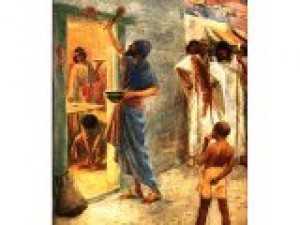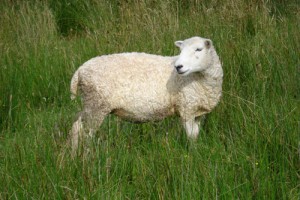Page 7 - The feast of Passover
We call this feast Khag ha-Pesakh, which means the feast of grace, because God brought our ancestors out of Egypt and liberated them from slavery.

This feast is also known as Khag ha-Matzot, ie the feast of unleavened breads, because when our ancestors left Egypt they baked and ate bread made from unleavened dough. (2M 12)
The Torah orders us to celebrate the feast of Passover for 7 days, from the 15th till 22th day of the first month.
The first and seventh day, it is necessary for each male to participate in worship assembly.
All work is prohibited, except the preparation of festive meals.
It is commanded to eat unleavened bread for the whole festival.
Before the coming of the feast it is required to remove all fermented khametz from our homes, and not to eat bread from fermented dough or any leaven from the 15th till 22th day of the first month.
16th, 17th, 18th, 19th and 20th days are called Khol ha-moed ie semi-feasts, during these days it is permitted (unless it is the Shabbat) to do the most necessary work.
The seventh day of the feast is called Shevii Atzeret, ie the seventh day of worship assembly, on this day falls the final worship.
We start to celebrate on 14th day of the month in the evening after the service in the kenasa.
After returning from the kenasa the family reads the Passover Haggada, the story about the meaning of Passover.
At meals we serve unleavened bread, roasted lamb and bitter vegetables (as symbol of the bitter life in Egypt).

The unleavened bread is baked on the eve of Passover by each family (if necessary we can also bake unleavened bread during khol ha-moed).
Flour for unleavened bread dough must be knead with cold water and without salt.
The dough for unleavened bread is allowed to be knead with honey, eggs or milk.
From the first Sunday of Passover, we count the Sefira - 50 days. After 50 days we celebrate the feast Shavuot.